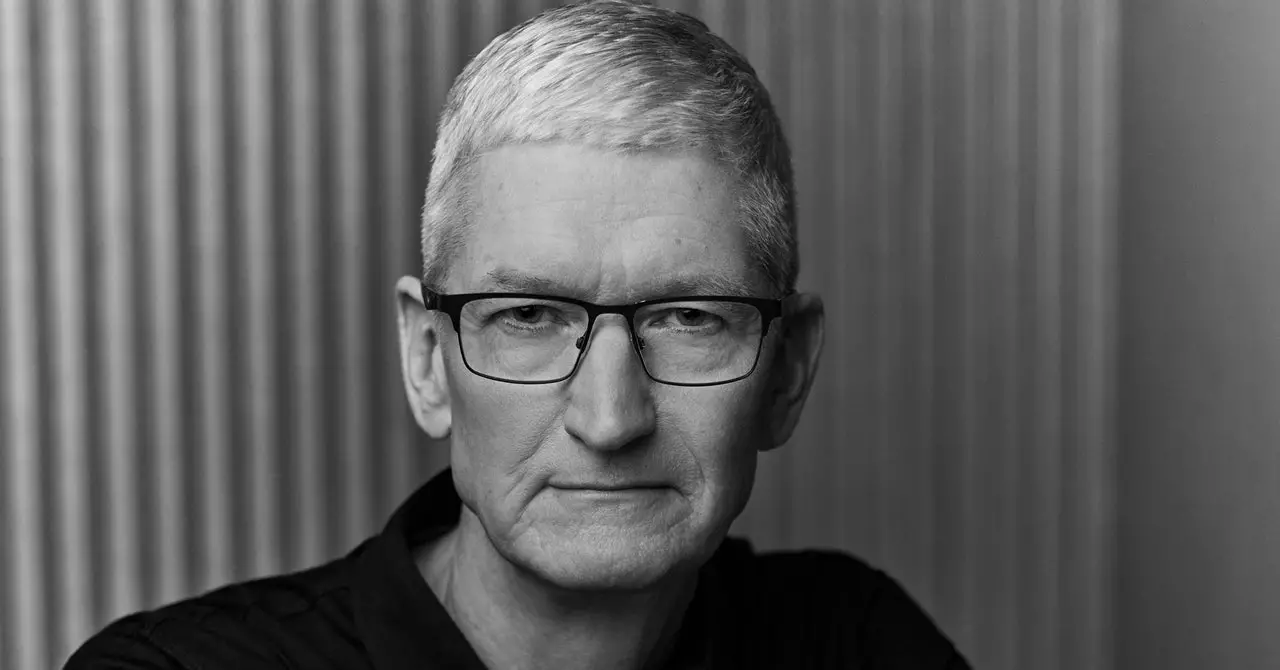Visiting Apple Park is like stepping into a blend of innovation and artistry. The once dusty, under-construction site is now an architectural marvel, embodying Apple’s ethos of meticulous design and forward-thinking. This setting frames a narrative of transformation not just in landscaping but in Silicon Valley’s competitive landscape. Tim Cook, the current face of Apple, has continued to steer the company with a strategic vision echoed from his predecessor, Steve Jobs. This environment becomes a fitting backdrop as Cook prepares to unveil Apple’s latest venture: Apple Intelligence in the realm of generative AI.
As the tech industry teeters on the brink of a generational shift, the importance of seizing opportunities in artificial intelligence cannot be overstated. Companies that once held the crown of innovation now grapple with pressure from nimble competitors that are quick to adopt and adapt cutting-edge technologies. While Apple’s recent focus has shifted toward augmented reality with a hefty headset launch, the absence of a robust AI offering has raised eyebrows. Skeptics question whether Apple has waited too long to dive into this domain. However, Cook is poised to demonstrate that patience in product development can yield exceptional results.
Cook’s philosophy emphasizes that being a pioneer does not always guarantee success. A historical examination of Apple’s trajectory suggests a consistent pattern where they have entered markets later but with a focus on delivering superior user experience. The iconic iPod serves as a prime example; it emerged well after the initial wave of MP3 players but provided a unique blend of functionality, design, and synergy with iTunes that revolutionized music consumption.
Though doubts linger, Cook argues that Apple has been strategically positioning itself for the AI surge over recent years. The recruitment of industry elite, such as John Giannandrea from Google, signals a commitment to cultivating talent within the AI space. This strategic pivot involved transitioning focus away from certain projects—like the rumored smart car initiative—shifting resources instead to integrate AI technologies into existing products. This reassessment reflects Cook’s steady hand and adaptability as the market evolves.
In a striking move, Apple recently announced the integration of AI capabilities into its product line-up, supporting applications familiar to users but enhanced by machine learning. Notably, a collaboration with OpenAI to enable users access to ChatGPT is a testimony to their understanding that partnerships can amplify their AI strategies. At the heart of this initiative are innovations such as custom emoji creation and user-friendly image generation tools, which aim to captivate audiences while offering practical utility.
A hallmark of Cook’s leadership is a staunch commitment to user privacy, a crucial consideration as Apple explores the AI landscape. Apple’s strategy for its AI tools emphasizes executing tasks locally on devices, minimizing dependence on cloud computing, and consequently safeguarding user data. This approach not only builds trust with consumers but also differentiates Apple’s offerings in a crowded marketplace where privacy is increasingly under scrutiny.
Anticipating challenges from the rollout of AI features, Cook’s focus remains on ensuring that Apple’s product enhancements will resonate with users. Historical missteps, such as shortcomings in the performance of Siri, underscore the risks involved and highlight the necessity for Apple to get AI integration right from the outset. The ghost of previous failures looms large, yet Apple’s meticulous nature amplifies the expectation that product introductions will be seamless and user-friendly.
Tim Cook’s demeanor contrasts sharply with the more abrasive style of Steve Jobs; he presents himself as a calm, composed leader who uses optimism and respect to counter scrutiny. In team settings and public engagements, he showcases an ability to promote Apple’s brand identity without alienating critics. His interviews reveal a master of diplomacy, as he deftly navigates inquiries that probe the company’s business decisions while steering conversations back toward their vision.
As our interaction comes to an end, it leaves one with a curious anticipation for the future of Apple Intelligence. The upcoming innovations under Cook’s aegis may very well redefine the market, positioning Apple anew in the generative AI conversation. If history is any guide, even amid uncertainty, Cook will market the next iteration of Apple’s AI tools with confidence, ensuring that any initial setbacks will simply serve as a stepping stone to eventual success.
The race toward an AI-driven future is replete with challenges, but if there’s one thing Tim Cook has proven, it’s that he remains undaunted under pressure, ready to lead Apple into uncharted territories with poise and vision.

